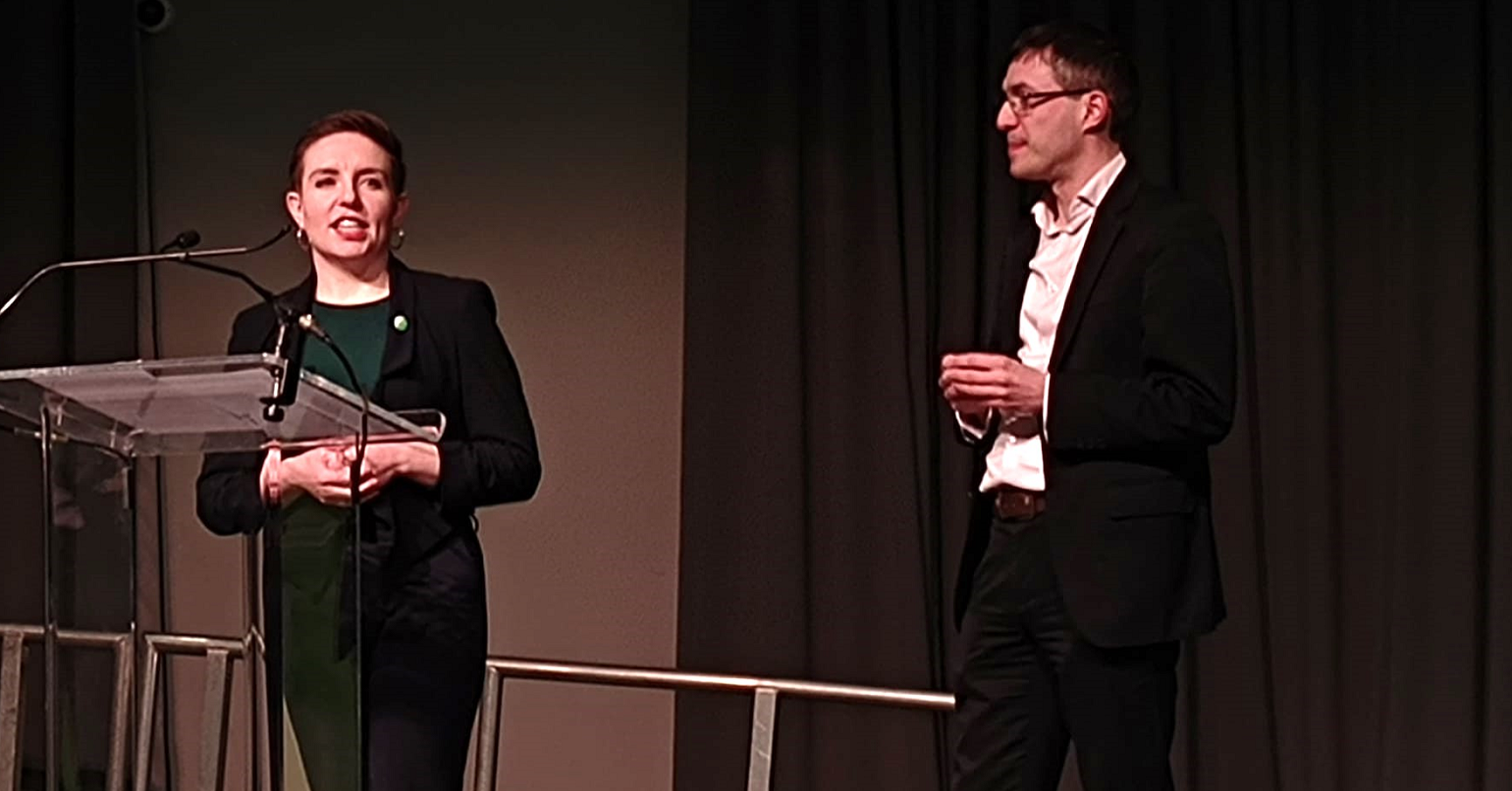2016 – Equality Triumphs
Looking back at 2016 it is undeniable that we have had a disheartening year; from the trauma of a Brexit vote to the inhumane treatment of refugees and the election of a misogynistic xenophobe over in the USA. However, in the interests of optimism, let’s look at some of the little victories that the movement for social equality has celebrated this year.
Refugees

Transphobia
At the tail end of 2015, the American Dialect Society named singular “they”, a gender neutral pronoun, as the word of the year. In a dramatic turn of events, 2016 has been even better for the acceptance of non-binary people – those whose gender is neither male nor female.
National Geographic published a full issue on the “shifting landscape of gender”, presenting non-binary people as well as trans and intersex (those who do not match the typical biological characteristics of a male or female sex) people, effectively starting an international conversation about how societies perceive sex and gender.
Meanwhile, Merriam-Webster unabashedly added the term “genderqueer” to their dictionary, a term used to describe non-binary individuals. In June the annual Rabbinical Assembly, an association of Jewish rabbis, reaffirmed the rights and identities of non-binary people. Most recently, TFL revealed plans to scrap binary gender specific announcements such as “ladies and gentleman” after the Green Party of England and Wales Equalities (LGBTIQA) spokesperson and transgender woman Aimee Challenor was told she “didn’t sound like a miss” by staff. Speaking to Bright Green, Aimee said “Transport for London making its announcements across the network gender neutral gives the trans and non-binary community hope that even big companies are now willing to make changes to accommodate us.”
Body positivity
The diversity of human bodies finally achieved some level of recognition in pop culture this year – in particular in the form of toys as Mattel released 4 different Barbie doll body types including shorter and curvier versions of the original statuesque and impossibly thin model.
Sports Illustrated also stepped away from its typical representations of the perfect body, featuring model Ashley Graham – who is around the average size for a US female – on the front cover. In an interview with the Daily Beast, Graham hopes that 2017 will begin to recognise plus-sized models as ordinary models.
Sex and gender
This year possessing a uterus became a little less deadly as a report revealed that the number of deaths related to pregnancy and childbirth has dropped by 44% since 1990, owing to progress in maternal healthcare worldwide. This would perhaps be one of the best pieces of news this year, if the same report did not also reveal that the distance between healthcare levels of the lowest and highest resourced countries had increased, contributing to global inequality.
Those with vaginas are also less likely to be illiterate than in previous years, as the number of those who the World Economic Forum identified as female who received some form of formal education increased by 5% in the previous ten years. UNESCO have even estimated that the gender gap in education will be closed by 2027, which is a comforting thought after the difficult year we have all faced.
Racism
Meanwhile in Canada, the Ontario government have pledged a concrete plan to combat violence against indigenous women in the form of $100 million funding, including anti-racism training for civil servants, support and outreach for First Nations youth and families and comprehensive research into racist abuse against natives. Though this is nowhere near a national solution, we can only hope that other local and national authorities will be able to consider any success the programme has and implement similar structures.
In the United States, a country well known for its problem with institutional racism, the racial disparity in incarceration has been reduced by two thirds in women and one quarter in men. Experts have theorised that this could be due to changes in popular drug use and a greater focus on catching sex offenders, who are disproportionately white, rather than any concrete reduction in the racism of the US criminal justice system however this is still positive news for the fight against racial inequality.
Disability
Amazing scientific advances at the University of Minnesota saw human beings able to operate robot limbs to carry out tasks using their mind thanks to cutting edge Brain-computer interface technologies. Whilst still in early stages, the applications of the science for amputees could be totally life-changing.
This year also saw a 40% increase in the amount of convictions for disability hate crimes, suggesting that prejudice against disabled people is being taken more seriously. The Crown Prosecution Service claim that this is due to their efforts to push up rates in order to make it clear that incidents of discrimination and violence against disabled people would be taken seriously.
____
Thankfully, this is just a small selection of some of the good news that 2016 had to offer and I have saved the most hopeful and inspiring piece for last: 2017 probably cannot be any worse.
PS. We hope you enjoyed this article. Bright Green has got big plans for the future to publish many more articles like this. You can help make that happen. Please donate to Bright Green now.




Thank you for being inclusive of trans and non-binary people in this article. As a non-binary person it’s great to see articles out there that acknowledge a difference between my parts and my identity. The wording here is clear and I can see where you are being inclusive even though your sources are not. I appreciate the effort you take to do this. <3
The use of language in this article is convoluted and unneccessarily complex. If you’re trying to make politics and equality more inclusive – start by using vocabulary that’s clearer.
Why can you use the word women in the context of racism, but not when it comes to reproduction – a key area of women’s inequality. Women are more than “those with vaginas” – even the World Economic Forum use the word female… why don’t you?
Possessing a uterus and those with vaginas!!! Seriously when did the word female/woman become a dirty word?
I am a woman that has transitioned and I now have a surgically created vagina. I’m offended that you use the term ‘those with vaginas’ to mean women born with a vagina. This is erasing me from the discussion and I am disgusted by this exclusionary language.
I am disappointed and confused by this use of language;
possessing a uterus
Those with vaginas
World Economic Forum identified as female
Are you referring to the material realities of female human beings? Female human beings who, on the basis of their sex (primary and secondary physical characteristics identified and observed at birth – if not before), are subject to gendered violence, inadequate services and economically disadvantaged?
I appreciate the need to include gender variant, and gender non-conforming people in your promotional material. I do not understand why you have conflated this need for recognition with removing the language that explains the structural nature of oppression as experienced by females; girls and women the world over.
being female is more than ‘possessing a uterus/vagina’, and certainly the label of ‘female’ is not randomly assigned by the World Economic Forum. Being female has physical, material, emotional and social implications, on the basis of judgements made as to all the contradictory things females should be (passive, pretty, sexy, not-slutty, a virgin, a slave, a mother, opinionless, apolitical…etc) on the basis of their perceived reproductive capacity.
Your language is so regressive, so damaging, and so belittling and disparaging of the realities of women and girls all over the world.
Yep, this.
This is offensive in the extreme. I am a woman, not a vagina-owner. How dare you reduce women to their anatomical parts like this. Grow up and read something outside of Twitter and your mates’ blogs. Suggest you start with Dworkinl